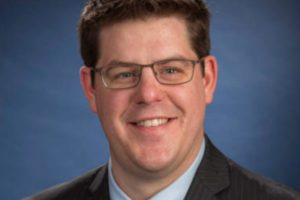
This is a hybrid event; to attend online, use the Zoom Meeting ID: 919 5918 2879 and Passcode: 270887.
Abstract: Fungi and yeasts are an essential branch of the tree of life because they drive vital ecological and economic processes. For example, different species of fungi produce medicines, recycle biomass, and make beer. Recently, genetic design has enabled the creation of engineered yeasts that are cell factories for bio-based products or cell-based devices for sensing and computing. My research group explores the biodiversity of fungi and yeasts to elevate “platform hosts” that have unique metabolism and physiology that could enable better cell factories and devices. We employ genomics, synthetic biology, standardization, and automation to rapidly domesticate these potential platforms into engineering workflows. Along the way, we gain insight into their fundamental biology. In this talk, I will describe how we have developed an accurate genome sequencing method that is the foundation for an “-omics to parts” workflow for potential platform yeasts. We apply this workflow to the red yeast Xanthophyllomyces dendrorhous, a potential terpenoid cell factory, and Debaryomyces hansenii, a potential cell factory that functions in saltwater. While our workflow yields standardized, modular, functional genetic parts, enabling future genetic engineering, we also show that it provides insight into fungal photobiology and osmotolerance. Finally, I will describe how we are using filamentous fungi to make functional genetic devices in soil, specifically a fungal-bacterial biosensor that can send signals long distances underground. These advances in cell factory development and genetic device construction highlight the potential of unique fungi and lay the foundation for novel approaches to constructing cell factories, enhancing agriculture, and remediating the environment.
Bio: Eric M. Young is the Leonard P. Kinnicutt Assistant Professor of Chemical Engineering at Worcester Polytechnic Institute. Dr. Young’s research focuses both on laboratory and computational approaches to understand and engineer interesting microbes of potential industrial importance. This interdisciplinary research spans the fields of metabolic engineering, protein engineering, synthetic biology, and bioinformatics. This research also informs his educational goal – to train the current and future workforce for an economy shaped by engineered biology. Dr. Young was recognized for these efforts by a 2019 NSF CAREER award.
Dr. Young completed his doctoral work at the University of Texas at Austin. Funded in part by a National Science Foundation Graduate Research Fellowship, he used directed evolution to engineer yeast membrane transporters. He went on to do postdoctoral research at the Synthetic Biology Center at MIT. There, he developed new strategies for part and pathway engineering in yeast. Dr. Young received undergraduate degrees in Chemical Engineering and Biological Engineering from the University of Maine at Orono.